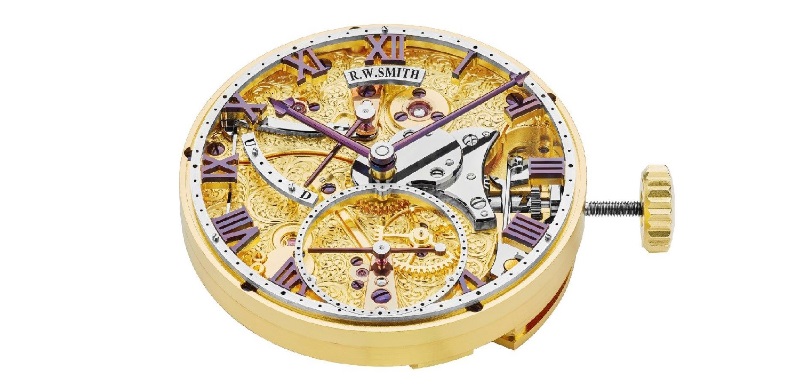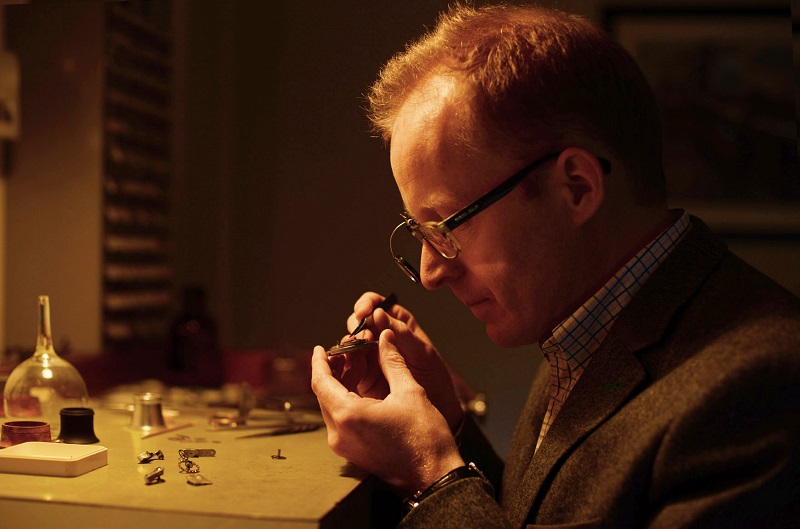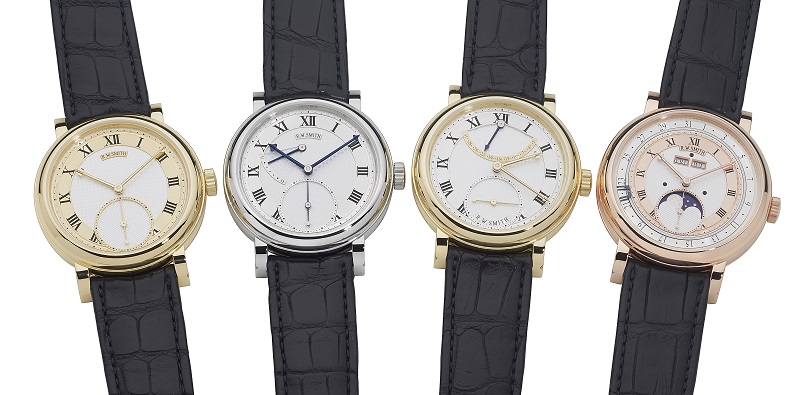News | Thursday, 4th April 2019
Nanotechnology could create ‘perfect’ heirloom watch that never loses time
Watchmaker Roger W Smith partners with Manchester Metropolitan University

The ‘perfect watch’ that never loses time thanks to nanotechnology is being explored in a new partnership between university researchers and the world’s leading independent watchmaker, Roger W Smith.
Researchers from Manchester Metropolitan University and British horologist Smith are looking at how to create a timepiece that never needs servicing and will always keep time through the use of next-generation materials.
It would be one of the first practical applications of 2D nanomaterials and could revolutionise commercial watchmaking.
Dr Samuel Rowley-Neale, Research Associate, and Dr Michael Down, Senior Research Associate, joined Smith to unveil their project today (April 4) at a panel discussion held at the UK's Department for International Trade’s Designing Our Future event in New York City in the United States.

A fight against friction
Manchester Metropolitan’s Dr Rowley-Neale said: “The main points of failure within a watch’s micromechanical mechanism are components such as pivots that use oil-based liquid lubricant to lower the amount of friction.
“This in turn increases the efficiency of the timepiece and so in many ways designing a watch mechanism can be considered a fight against friction.
“Over time the liquid lubricant dries out and crumbles away and the mechanism begins to seize up and lose time and then the owner will have the watch serviced at regular intervals.
“What we’re proposing is to use advanced 2D nanomaterials to create a dry lubricated surface that will prevent the requirement for a watch to be serviced.
“We aim to help create an heirloom timepiece that can be genuinely passed from generation to generation safe in the knowledge it does not require maintenance.”

If creating a new ‘hard lubricant’ with nano-coatings can overcome the limitations of traditional lubricants then it would be a huge leap forward
Experiment with nanomaterials
The Manchester Metropolitan team will experiment in the University’s Manchester Fuel Cell Innovation Centre using different nanomaterials in conjunction with Smith’s hand-made watch components including the escapements, which provide the energy or impulse for the watches’ hands.
Smith, who is based in the Isle of Man, said: “The purpose of our collaboration is to see if we can do without lubricants altogether by rendering the mechanical watch components virtually frictionless.
“The potential is quite staggering and it’s actually about lubrication rather than mechanics.
“Once you’ve optimised the mechanics of a watch, you still have to address the deterioration of lubricant oils.
“It’s a centuries-old barrier to progress. Back in the 18th Century the great watchmaker Breguet, said: ‘Show me the perfect lubricant and I will show you the perfect watch!’.”

Trickle-down effect
Nanomaterials are already used for lubrication in the large machinery of the mining industry but the concept has never been fully explored in micro-mechanical engineering, let alone watchmaking.
If successful, the application could have a trickle-down effect for nanotechnology into more commonly used day-to-day applications.
Dr Down said: “We were looking to prove applications for nano-coatings in micro-mechanical engineering.
“Watchmaking is perhaps the ultimate expression of that field and we have followed the work of Roger W Smith for some time and, in particular his advances with the co-axial escapement.
“This is by far the most advanced escapement in modern horology and its mechanical efficiency and low energy factors make it ideal for this research, when compared to existing lever escapements.”
Tradition of innovation
Smith said: “These ideas might seem radical, but this follows a very British tradition, as all our great watchmakers were relentless in their efforts to advance timekeeping with new inventions.
“If creating a new ‘hard lubricant’ with nano-coatings can overcome the limitations of traditional lubricants then it would be a huge leap forward.”




